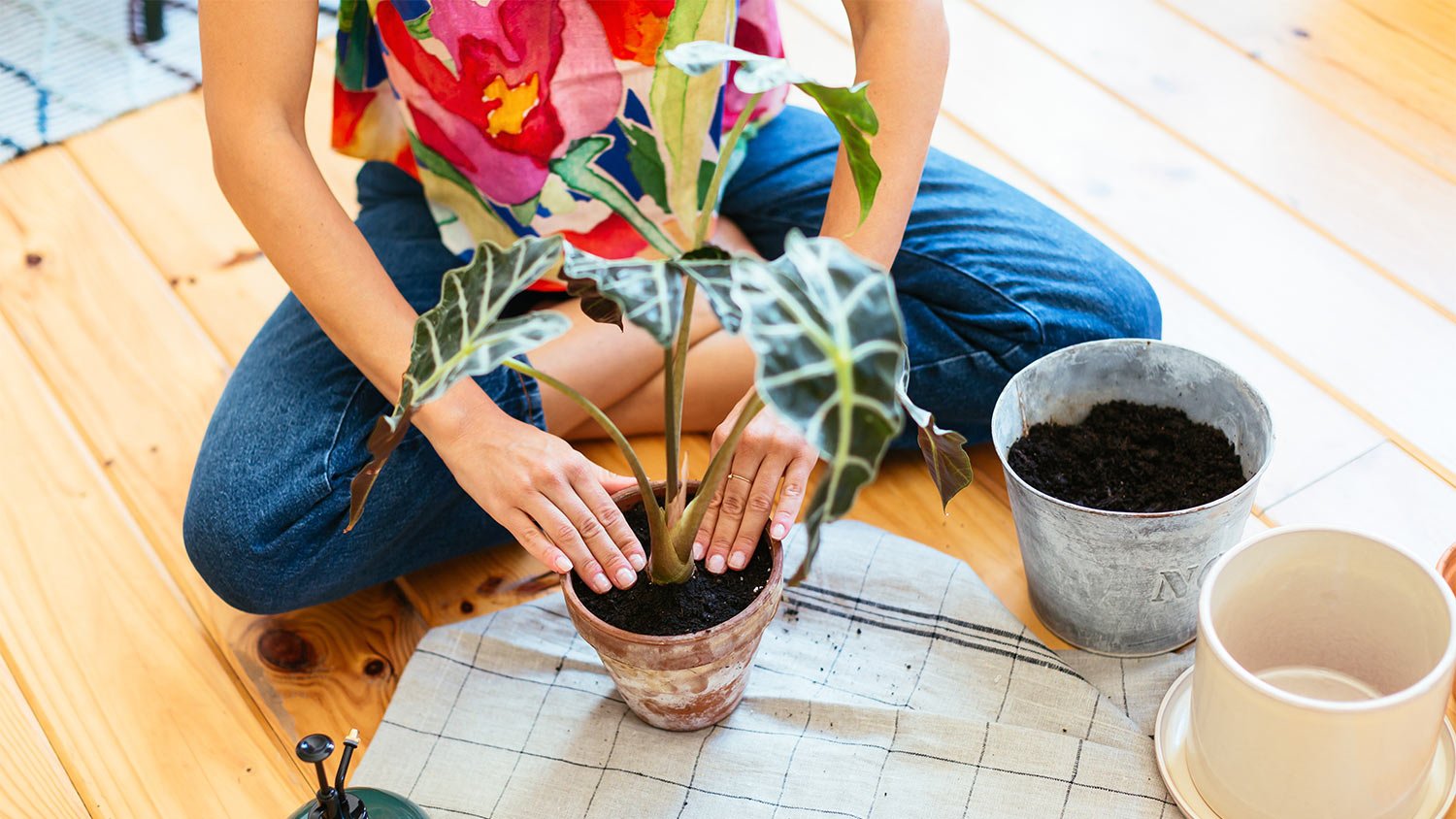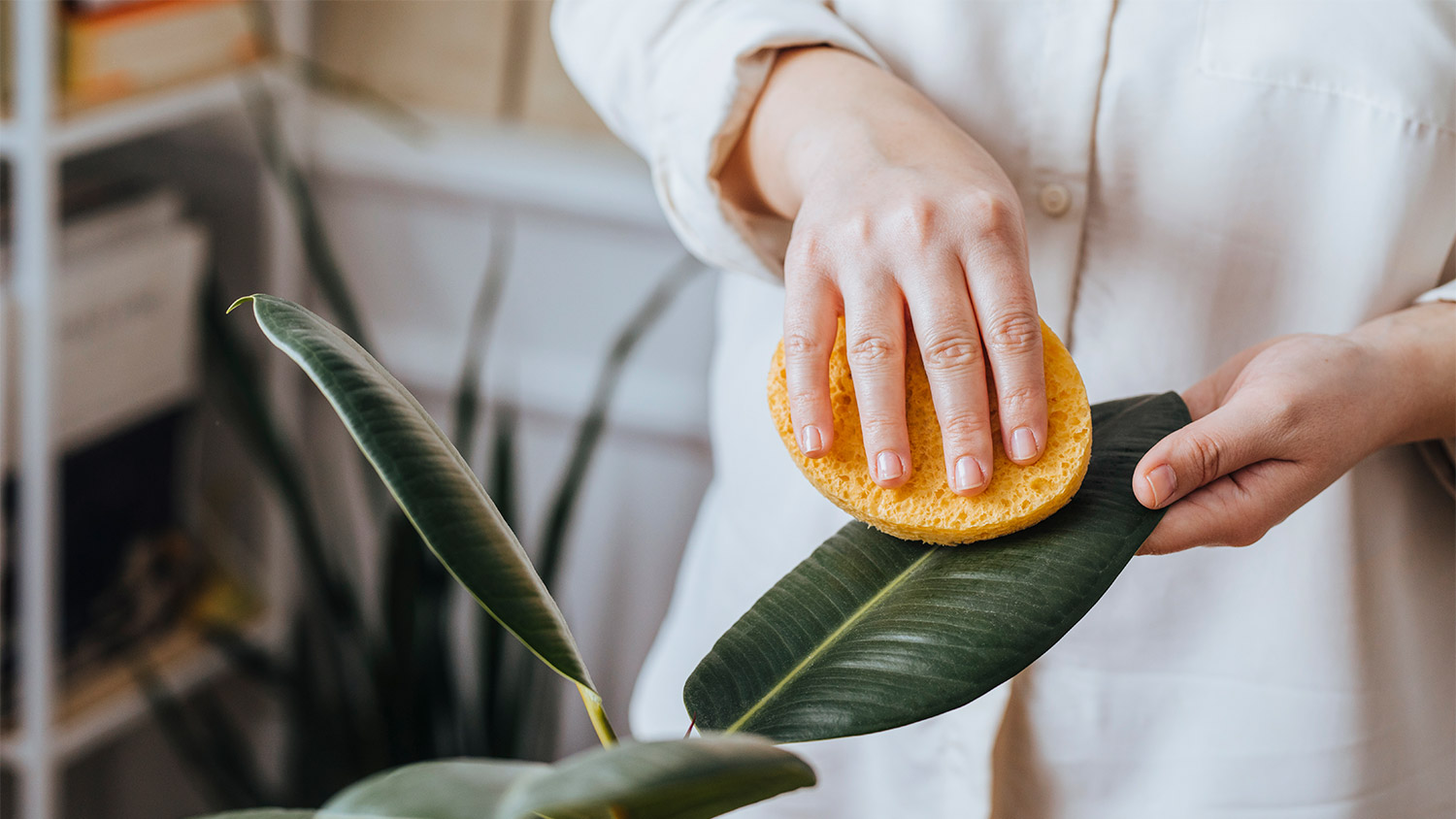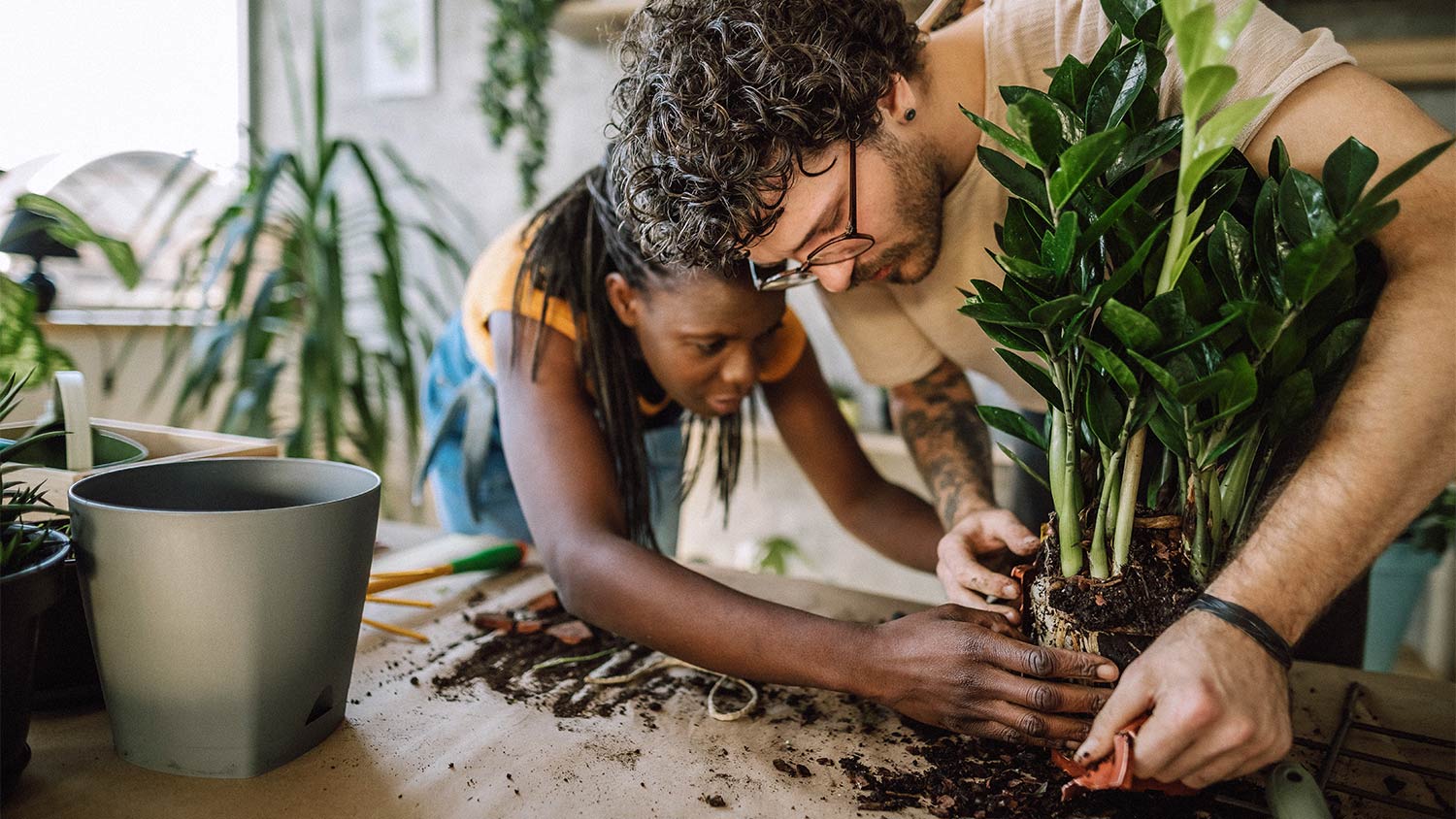8 Health Benefits of Your House Plant Collection
From lowering your stress levels to regulating humidity, here's how your plants are rooting for you


Bamboo on the bookshelf, chrysanthemums in the corner, and a ficus in the foyer—many of us are putting plants everywhere in our homes lately.
In addition to our simple need for a buddy to water, visit with, and—let's face it—chat with every day, indoor foliage may have a range of health benefits that go beyond that crucial sense of purpose. While plants aren’t exactly a magic cure for anything (besides making a room more beautiful), there are a few science-backed reasons to justify buying one more snake plant or succulent.
1. May Improve Air Quality
Let's kick things off with the elephant (ear) in the room. A commonly cited 1980s study by NASA spread the word far and wide that house plants remove VOCs—aka volatile organic compounds—from your home. Here's the tricky thing. The study took place in an airtight lab setting that didn't come close to mirroring the common residential living space.
Scientists are finally saying "not so fast" on the houseplant-clean-air theory. All this being said, plants do still remove scant amounts of ozone and VOCs—and that shouldn't be overlooked. However, it's best to pair your plants with a filtered HVAC or additional air filtration system.
2. May Reduce Psychological Stress

We all by now know that mental and physical health go hand-in-hand. Chronic stress knocks your immune system down a few pegs, increases blood pressure, and can lead to long-term health issues and muscular pain.
A 2015 study published in the Journal of Physiological Anthropology studied heart rate variability and blood pressure in young adults switching between a computer task and repotting a plant. Interaction with the houseplant resulted in much healthier results and a feeling of comfort and calm. If this is your favorite self care activity, it looks like you’re not alone.
And get this—it's not just about the plant lowering your stress, but the soil itself. Growing research around certain microorganisms in soils finds a link with lower stress levels as well.
3. Could Improve Sleep
Where else do the stress-relieving effects of plants come in handy? Your bedroom is an ideal place to add some lush foliage—and even some herbs and fruit-bearing plants.
Beijing University completed a sleep study for astronauts headed to deep space and long periods of isolation. Certain edible plants—such as coriander and strawberry—improved the sleep cycles of astronauts due to the plant's color, smell, and the opportunity to interact with the plan before bed. In other words, pay your lavender plant a visit before you head to sleep for potentially sweeter dreams.
4. May Help Ease Anxiety While Healing
Home is a place for healing, whether we're getting rest after surgery or kicking a persistent cold. It turns out that a home packed with plants is an ideal place to do so—and not simply because it looks pretty.
Back in 2008, a study by the American Society for Horticultural Science followed the recovery journeys of patients in the hospital after the same procedure. Rooms filled with flowering plants lowered the patients' blood pressure, request for pain medications, and an overall sense of anxiety about the experience.
While nothing beats some soup and quality caretaking, at the very least, we know our beloved houseplant collection is there to keep us company while we kick that bug.
5. Could Improve Concentration

Work-from-home spaces are becoming more permanent for many. While working in your pajamas is certainly a perk, concentrating at home with the dog begging to go out, the kids on a school video call, and a parade of lawn mowers going down the street is quite the challenge.
In comes our hero—the house plant. A small study from Konkuk University conducted in elementary school classrooms found that students were less likely to lose focus on the task at hand in a room of real plants. Even fake plants or pictures of plants didn't do the trick.
So, the next time you have a three-hour all-company meeting and you need to keep your mind sharp, fill your home office with ferns for some moral support. Just be sure to choose plants safe for curious cats and dogs so everyone in your home can benefit.
6. Regulate Humidity
For everyone who suffers from dry skin and eyes in the peak of winter, spider and jade plants may lend a hand—or a leaf.
A study published in HortTechnology found that the presence of these plants in living spaces increased the relative humidity of a room under the right conditions. As the study points out, incredibly low relative humidity can lead to dry skin, eye discomfort, and even the increased transmission of pathogens. Results of the study increased some residential humidity levels by 10%.
Of course, if you’re dealing with dry eyes or skin, you should pair your favorite plants with a humidifier for noticeable benefits.
7. May Improve Relationships

Sure, improving how you get along with your roommate may not directly relate to health, but it definitely links to stress levels, which is key. A handful of research summarized by Texas A&M notes that more time spent around plants links to higher levels of compassion and healthier social interactions.
In other words, every time you break out your watering can and check on the plants in your home, you may be building your ability to connect with humans as well.
8. Keep Pests Away
If you've dealt with persistent pests such as fleas, ants, and mosquitoes, keep the hoards away with plants that bugs avoid. Pop a catnip plant on your windowsill to send away the mosquitoes, or plant some sage to repel fleas naturally. Basil and lemon balm has a similar effect—encouraging the construction of a full pest-repelling indoor herb garden.

